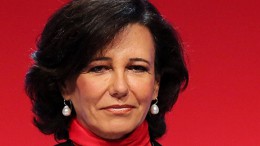Botín steers Santander ship into fresh water
MADRID | By Fernando G. Urbaneja | Spanish bank Santander is a powerful battleship, the euro zone´s largest by market cap, one of the world’s leaders, with an outstanding presence on both sides of the Atlantic. It is therefore a complicated engine to move, even slowly. The unexpected death of the company´s chairman, Emilio Botín, in September 2014, brought about the accession of his daughter Ana to the bank´s top post. The younger Botín possesses unquestionable professional credentials, but nonetheless has had to allay fears that any change in leadership can bring about.






